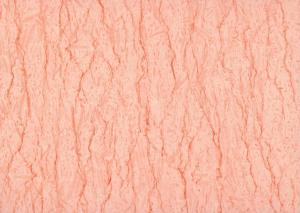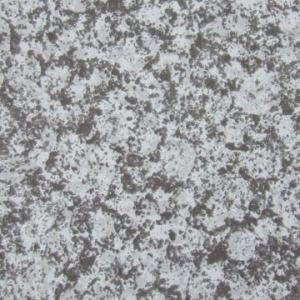Pre-painted Galvanized Steel Coil-JIS G 3312-stone pattern7
- Loading Port:
- Shanghai
- Payment Terms:
- TT OR LC
- Min Order Qty:
- -
- Supply Capability:
- 4000吨 m.t./month
OKorder Service Pledge
OKorder Financial Service
You Might Also Like
Pre-painted Galvanized Steel Coils/ PPGI/GI
I Specifications:
1.Thickness:0.16-2.0mm
2.Width:600-1500mm
3.Material: SGCC,SGCD,SECC,SECD,DX51D+Z
4.Zinc coating:40-275G/M2
5.Surface Structure: galvanized ,zero spangle, regular spangle or normal spangle
6.Surface treatment: chromated and oiled, chromated and non-oiled
7.Color:all RAL series
II Main characteristics :
1.strong corrosion resistance
2.surface quality
3.conducive to deep processing,such as the embossed PPGI,printed PPGI&punching PPGI
4.economy and practicality
III Applications:
Household Appliance:
1.Refrigerator shutter &side panels, Washer, Freezers, Air conditions,
2.Rice Cooker, Microwave Ovens, Water Heaters, Sterilization Cabinets, Range Hoods
3.Computer Panels , DVD/DVB panels, TV back panel etc.
Teaching Board: whiteboard, blackboard, green board(chalk board).
Indoor Decoration: Fireproof Door, kitchen cabinet, wall decoration.
Shipping Industries: Ship, Fecht, Marine.
Elevator/Medical Equipment/Rubbish Bin.
Thickness:0.17mm-0.8mm
Width:600mm-1250mm
Prepainted Galvanized Steel Coil
- Q: How are steel coils inspected for coil weight accuracy?
- Steel coils are inspected for coil weight accuracy by using weighing scales or load cells to measure the weight of the coil. The coil is placed on the scale, and the weight is compared to the specified weight range provided by the manufacturer. If the weight falls within the acceptable range, the coil is considered accurate.
- Q: Does anyone know anything about Kodiak Steel Homes?
- Steel framing replaces all the wood making the house stronger and resistant to termites. Costs about $2,000 more per house and there is a lack of trained framers in most cities. Never heard of Kodiak brand. Do you know a city where they are located?
- Q: What are the different types of steel coil packaging?
- Various industries use different methods to package steel coils. Some common types include: 1. Wooden Crates: Steel coils are often placed in wooden crates for transportation and storage. These crates effectively protect against damage and ensure secure transit. 2. Steel Frame Bundles: Steel coils are tightly strapped together using steel bands or wires, creating a sturdy bundle that can be easily lifted and moved with cranes or forklifts. This method is suitable for vertical stacking. 3. Steel Strapping: Steel coils can also be packaged using steel strapping. Straps are tightly wrapped around the coils to secure them in place, providing protection against movement and damage during transportation. 4. VCI (Volatile Corrosion Inhibitor) Packaging: VCI packaging is ideal for preventing corrosion during storage and shipment. The coils are wrapped in special VCI film or paper that releases corrosion-inhibiting molecules, ensuring the coils remain rust-free. 5. Cardboard Packaging: Smaller steel coils or those needing extra protection can be packaged in cardboard boxes or cartons. The coils are placed inside and the box is sealed, creating a barrier against damage and contamination. 6. Stretch Wrapping: Plastic film is tightly wrapped around the steel coils, creating a secure and protective layer. This method is useful when coils need protection from dust, moisture, or other external elements. The choice of steel coil packaging method depends on factors such as size, weight, transportation requirements, and desired level of protection. Each method offers its own advantages and is chosen based on industry needs and coil specifications.
- Q: What is the lifespan of coated steel coils?
- The lifespan of coated steel coils may differ based on various factors, including the coating type and quality, the environmental conditions they face, and the care and maintenance provided. Typically, high-quality coated steel coils can last 25 to 50 years or longer. However, it is important to note that this estimate is not definitive and the actual lifespan may vary. To significantly extend the lifespan of coated steel coils, it is essential to conduct regular inspections, ensure proper installation, and perform timely maintenance. Moreover, exposure to severe weather, corrosive environments, and improper handling can potentially shorten the lifespan. Consulting with manufacturers or industry experts is recommended to determine the most suitable coating and expected lifespan for specific applications.
- Q: What are the different types of surface treatments for steel coils?
- There are several different types of surface treatments available for steel coils, each designed to enhance the appearance, protect against corrosion, and improve the overall durability of the steel. Some of the commonly used surface treatments for steel coils include: 1. Hot-dip galvanizing: This process involves immersing the steel coils in a bath of molten zinc, which forms a protective layer on the surface. Hot-dip galvanizing provides excellent corrosion resistance and can withstand harsh environments. 2. Electro-galvanizing: In this method, a thin layer of zinc is electroplated onto the surface of the steel coils. Electro-galvanizing offers good corrosion resistance and improves the aesthetics of the steel. 3. Organic coating: Steel coils can be coated with organic materials such as paints, lacquers, or polymer films. These coatings provide protection against corrosion, abrasion, and UV radiation, while also offering a wide range of color options. 4. Phosphating: Phosphating is a chemical treatment that converts the steel surface into a layer of phosphate crystals. This treatment enhances the adhesion of subsequent coatings and improves the corrosion resistance of the steel. 5. Chromating: Also known as passivation, chromating involves the application of a chromate conversion coating onto the steel surface. This treatment enhances the corrosion resistance and provides a decorative finish. 6. Oiling: Oiling is a simple surface treatment that involves applying a thin layer of oil onto the steel coils. This treatment helps prevent corrosion during storage and transportation and can be easily removed before further processing. 7. Pickling: Pickling is a process where the steel coils are immersed in an acid solution to remove impurities and scale from the surface. This treatment improves the surface finish and prepares the steel for subsequent processing or coatings. 8. Tin plating: Steel coils can be coated with a layer of tin through electroplating. Tin plating provides excellent corrosion resistance, solderability, and aesthetic appeal. These are just a few of the many surface treatments available for steel coils. The choice of treatment depends on the specific requirements of the application, including the desired appearance, corrosion resistance, and environmental conditions the steel will be exposed to.
- Q: How are steel coils used in the production of steel springs?
- Steel coils are used in the production of steel springs as they serve as the raw material for creating the spring's structure. The steel coils are typically shaped and cut into the desired length and diameter to form the spring's body. The coils are then heated and tempered to provide the necessary strength and flexibility required for the spring's function. Overall, steel coils are integral in the manufacturing process of steel springs, providing the base material from which springs are formed.
- Q: What are the dimensions of steel coils used in the structural component industry?
- The dimensions of steel coils used in the structural component industry can vary depending on the specific application and requirements. However, common dimensions for steel coils in this industry typically range from 0.5 to 3.0 millimeters in thickness and 600 to 2000 millimeters in width. The length of the coils can vary but is often around 2000 to 2500 meters.
- Q: engineering sloutions related to steel fabrication
- The American Institute of Steel Construction develops codes for steel building design in the U.S. See the link to below to the Steel Solutions Center at their website. You can find free programs for designing structural steel elements from clicking on technical resources at that link. Most of the programs presume that you are a structural/civil engineer with knowledge of the steel design specifications.
- Q: Hey everyone.I have a whetstone and a honing steel. I purposely tried to make one of my knives less sharp twice to see how well the whetstone and honing steel would work.It even seemed that when I was using my whetstone it wasn't as sharp as it was when I used my honing steel, but when I also used my honing steel after having sharpened my knife on the whetstone, it was razor sharp.I was wondering, is the whetstone only supposed to be used when the knife edge isn't as flat anymore or something? Like, only when it doesn't really have an edge anymore?Please explain your answer.Thanks everyone.
- In general, whetstones will actually remove metal in order to sharpen a blade, and the angle they're used at is important too. A steel will just straighten the blade between uses, not actually remove metal. The effect is to make it sharper than it was just before, but only because it's straighter. Using a knife makes the very thin edge kind of flatten or even fold over a bit, or get wavy, etc...so the steel just straightens it back out (imagine what happens when the very thin blade gets pressed down repeatedly on a cutting board, or even cuts through foods repeatedly). (A whetstone is used only when steeling finally just isn't enough to get the blade sharp as needed.) .
- Q: What is the process of recycling steel coils?
- The process of recycling steel coils involves several steps. First, the steel coils are collected from various sources, such as manufacturing and construction sites. Next, the coils are transported to a recycling facility where they undergo a thorough inspection and sorting process. The coils are then cleaned to remove any contaminants or impurities. After cleaning, the steel coils are shredded into smaller pieces and melted down in a furnace. The molten steel is then molded into new coils or other steel products. Finally, the recycled steel coils are tested for quality and can be used in various industries, reducing the need for new steel production and minimizing waste.
Send your message to us
Pre-painted Galvanized Steel Coil-JIS G 3312-stone pattern7
- Loading Port:
- Shanghai
- Payment Terms:
- TT OR LC
- Min Order Qty:
- -
- Supply Capability:
- 4000吨 m.t./month
OKorder Service Pledge
OKorder Financial Service
Similar products
Hot products
Hot Searches
Related keywords




























